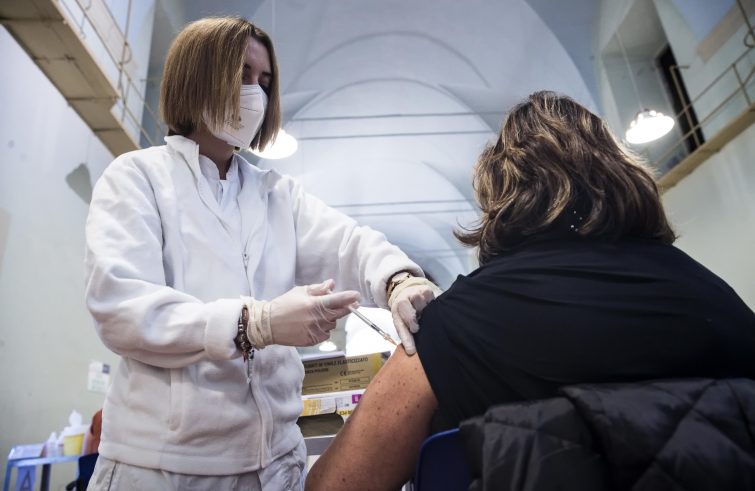
A wise decision to protect medically vulnerable persons. Following the recommendation of the European Centre for Disease Prevention and Control (ECDC) and the European Medicines Agency ( EMA), Italy’s Ministry of Health decided to expand the vaccination campaign for those aged 60 and older, four months after the previous shot. According to Dr Roberto Cauda, Professor of Infectious Diseases at the Catholic University and Director of the Infectious Diseases Unit at Rome’s Gemelli Hospital, health authorities took this decision on the basis of scientific evidence. He adds: “I would recommended it.”
Professor could we be nearing the peak of the fifth wave?
If we look at today’s numbers they show a slow down in the growth rate of incidence, which was considerable. This means that the peak has almost been reached.
Antivirals are rarely administered in Italy. Why?
There should be more information among general practitioners on how to administer them, especially to vulnerable patients. These types of drugs should be prescribed carefully, considering potential drug interactions. Specifically, Paxlovid cannot be administered to patients on certain heart medications. That being said, antivirals should be administered to a greater extent because
the virus cannot be defeated solely with a second booster shot of the vaccine or with preventive measures such a wearing a mask indoors.
The European Medicines Agency is planning to approve two vaccines adapted to Omicron variants, expected to be available in September.
These are bivalent Covid vaccines, which target both Omicron and the original strain. Trivalent vaccines, i.e. combined with the flu vaccine, are also being evaluated. In fact, the influenza virus appears to have circulated less frequently over the past two years, but we must look at what is happening in the southern hemisphere, with many recorded cases of the H3N2 virus.
Has Italy forgotten about the pandemic and lowered all defences?
There is no point in pointing fingers. People are less afraid of Covid, yet there remain medically fragile individuals that we need to protect.
Today the Ministry of Health gave the green light to the fourth dose of the vaccine for individuals aged 60 and older.
The decision to expand vaccine coverage is wise given the high number of cases. Its efficacy will have to be monitored, but I believe it’s a cautious approach. The fourth vaccine dose helps protect against severe outcomes.
A study conducted in Israel on a large number of cases over a short timeframe, from January to March 2022, i.e. when Omicron 1 was circulating, showed that a second booster dose increased protection against infection and most of all against serious outcomes in people over 60.
So far, octogenarians have not followed the advice, with a small number of them having received a second booster dose.
Health authorities did the right thing by adopting a decision based on scientific studies. We have learnt by now that vaccines don’t prevent transmission, but protect the most medically vulnerable.
Should those who received a booster shot, got re-infected in this recent wave and are 60 years old not receive a fourth dose?
They should not. But they can receive the updated vaccine, probably next fall.
Is the new BA.2.75 variant a cause for concern?
It appears to have a higher transmissibility than Omicron 4 and 5 in India, where it is circulating. However, I would wait and see if it is strong enough to spread even here. There seem to be two mutations that make it particularly immune-evasive, both against natural infection and vaccination. This variant will have to be attentively monitored. At present, there is little we can say except what we will learn from the data provided by our Indian colleagues.












